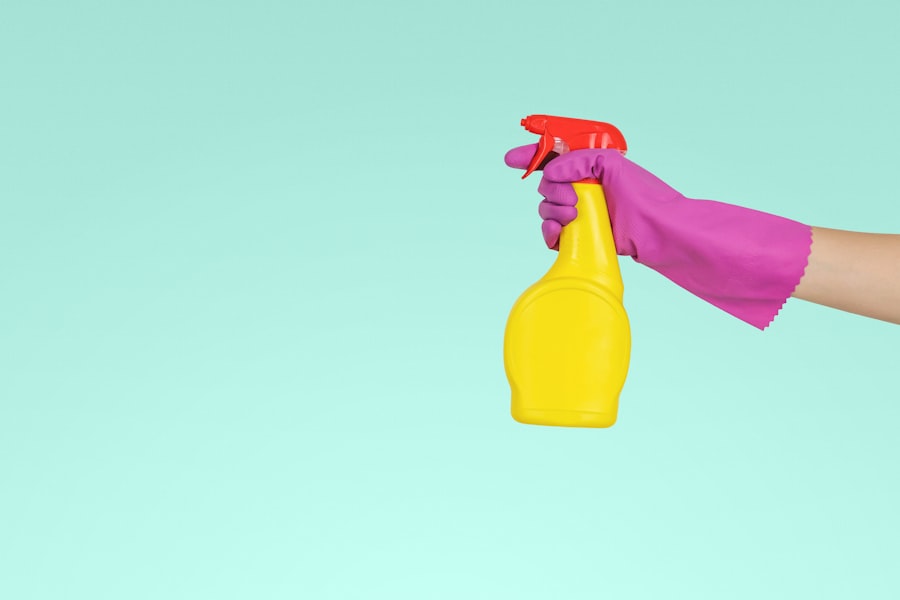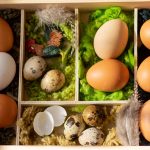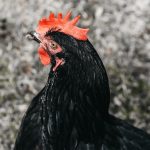Salmonella is a bacterial pathogen that can cause foodborne illness in humans. It is frequently associated with poultry, particularly chickens and their eggs. Chickens may harbor Salmonella in their intestinal tracts without exhibiting any symptoms of disease.
The bacteria can be transmitted to their eggs through various means. Human consumption of contaminated eggs or poultry products can result in illness characterized by symptoms such as diarrhea, fever, and abdominal pain. In severe cases, Salmonella infections may necessitate hospitalization and can be life-threatening, especially for vulnerable populations including the elderly, young children, and immunocompromised individuals.
To mitigate the spread of Salmonella, it is crucial for chicken owners to be well-informed about the bacteria and its associated risks. This includes recognizing the symptoms of Salmonella infection in humans and understanding how to reduce the risk of contamination from chickens and their eggs. By comprehending the relationship between Salmonella and chickens, owners can implement preventive measures to safeguard themselves, their families, and their communities from foodborne illnesses.
Salmonella is a significant concern for chicken owners due to its potential presence in the intestines of healthy birds. Consequently, even apparently healthy chickens may carry and transmit Salmonella to their eggs. Chicken owners should be aware of this risk and take appropriate precautions to minimize Salmonella transmission.
These measures include implementing proper hygiene and sanitation practices, as well as ensuring safe handling and storage of eggs. By understanding the potential for Salmonella contamination in chickens and their eggs, owners can proactively reduce the risk of foodborne illness for themselves and others.
Table of Contents
Key Takeaways
- Salmonella is a bacteria commonly found in chickens and their eggs, which can cause foodborne illness in humans.
- Proper hygiene and sanitation practices, such as regular handwashing and cleaning of chicken coops, are essential for preventing Salmonella contamination.
- Eggs should be stored in the refrigerator and cooked thoroughly to kill any potential Salmonella bacteria.
- Keeping the chicken coop clean and dry can help reduce the risk of Salmonella contamination and other health issues in chickens.
- Regular monitoring of chicken health and implementing biosecurity measures can help prevent the spread of Salmonella and other diseases among the flock.
Proper Hygiene and Sanitation Practices
Maintaining Clean Living Conditions
Maintaining clean living conditions for chickens is essential for preventing the spread of Salmonella. This includes regularly cleaning chicken coops to remove feces, dirt, and other potential sources of contamination. Clean living conditions can help reduce the risk of Salmonella being transferred from the chickens to their eggs.
Practicing Good Personal Hygiene
Practicing good personal hygiene is also vital for preventing the spread of Salmonella. Chicken owners should wash their hands thoroughly with soap and water after handling chickens or collecting eggs, as well as before and after preparing food. This can help reduce the risk of contamination and protect both the chickens and their eggs.
Implementing Proper Sanitation Practices
Implementing proper sanitation practices in chicken coops and egg storage areas is also important. This includes regularly disinfecting surfaces that come into contact with chickens or eggs, such as nesting boxes, feeders, and waterers. Using a disinfectant that is effective against Salmonella can help reduce the risk of contamination and protect both the chickens and their eggs. By implementing proper hygiene and sanitation practices, chicken owners can minimize the risk of Salmonella contamination and help ensure the safety of their eggs and poultry products.
Safe Handling and Storage of Eggs

Safe handling and storage of eggs are critical for preventing Salmonella contamination. After collecting eggs from the coop, it is important to handle them carefully to minimize the risk of spreading bacteria. This includes avoiding contact between the eggshells and any potential sources of contamination, such as feces or dirt.
Eggs should be stored in a clean and dry environment at a consistent temperature to help maintain their quality and safety. Additionally, it is important to refrigerate eggs promptly after collection to slow down any potential bacterial growth. When handling eggs, it is important to avoid washing them unless absolutely necessary.
Washing eggs can remove the protective coating on the shell, which can increase the risk of bacterial contamination. Instead, it is best to gently clean dirty eggs with a dry cloth or abrasive sponge before storing them. By following safe handling and storage practices for eggs, chicken owners can help minimize the risk of Salmonella contamination and ensure the safety of their poultry products.
Safe handling and storage of eggs are critical for preventing Salmonella contamination. After collecting eggs from the coop, it is important to handle them carefully to minimize the risk of spreading bacteria. This includes avoiding contact between the eggshells and any potential sources of contamination, such as feces or dirt.
Eggs should be stored in a clean and dry environment at a consistent temperature to help maintain their quality and safety. Additionally, it is important to refrigerate eggs promptly after collection to slow down any potential bacterial growth. When handling eggs, it is important to avoid washing them unless absolutely necessary.
Washing eggs can remove the protective coating on the shell, which can increase the risk of bacterial contamination. Instead, it is best to gently clean dirty eggs with a dry cloth or abrasive sponge before storing them. By following safe handling and storage practices for eggs, chicken owners can help minimize the risk of Salmonella contamination and ensure the safety of their poultry products.
Maintaining a Clean and Dry Coop
Maintaining a clean and dry coop is essential for preventing Salmonella contamination in chickens and their eggs. A clean coop helps reduce the risk of bacterial growth and transmission among the birds. This includes regularly removing feces, soiled bedding, and other potential sources of contamination from the coop.
Additionally, it is important to keep the coop well-ventilated to help maintain a dry environment, as excess moisture can promote bacterial growth. In addition to regular cleaning, it is important to provide clean bedding for the chickens to help keep them dry and comfortable. This can help reduce the risk of bacterial contamination in the coop and minimize the spread of Salmonella among the birds.
By maintaining a clean and dry coop, chicken owners can help protect their flock from illness and ensure the safety of their eggs. Maintaining a clean and dry coop is essential for preventing Salmonella contamination in chickens and their eggs. A clean coop helps reduce the risk of bacterial growth and transmission among the birds.
This includes regularly removing feces, soiled bedding, and other potential sources of contamination from the coop. Additionally, it is important to keep the coop well-ventilated to help maintain a dry environment, as excess moisture can promote bacterial growth. In addition to regular cleaning, it is important to provide clean bedding for the chickens to help keep them dry and comfortable.
This can help reduce the risk of bacterial contamination in the coop and minimize the spread of Salmonella among the birds. By maintaining a clean and dry coop, chicken owners can help protect their flock from illness and ensure the safety of their eggs.
Monitoring and Maintaining Chicken Health
Monitoring and maintaining chicken health is crucial for preventing Salmonella contamination in poultry products. Healthy chickens are less likely to carry or spread bacteria such as Salmonella, so it is important for chicken owners to monitor their flock for signs of illness or disease. This includes observing the birds for changes in behavior or appearance, as well as monitoring their egg production for any abnormalities.
In addition to regular monitoring, it is important to provide proper nutrition and access to clean water for the chickens to help support their overall health and immune function. This can help reduce the risk of illness among the birds and minimize the potential for bacterial contamination in their eggs. By monitoring and maintaining chicken health, owners can help protect their flock from illness and ensure the safety of their poultry products.
Monitoring and maintaining chicken health is crucial for preventing Salmonella contamination in poultry products. Healthy chickens are less likely to carry or spread bacteria such as Salmonella, so it is important for chicken owners to monitor their flock for signs of illness or disease. This includes observing the birds for changes in behavior or appearance, as well as monitoring their egg production for any abnormalities.
In addition to regular monitoring, it is important to provide proper nutrition and access to clean water for the chickens to help support their overall health and immune function. This can help reduce the risk of illness among the birds and minimize the potential for bacterial contamination in their eggs. By monitoring and maintaining chicken health, owners can help protect their flock from illness and ensure the safety of their poultry products.
Implementing Biosecurity Measures

Controlling Access to the Coop Area
This includes controlling access to the coop area by limiting visitors, vehicles, or equipment that could potentially introduce bacteria or other pathogens to the birds.
Practicing Good Biosecurity When Introducing New Birds
In addition to controlling access, it is important to practice good biosecurity when introducing new birds into an existing flock or when returning from a visit to another poultry facility. This includes quarantining new birds before introducing them to existing ones, as well as thoroughly cleaning and disinfecting any equipment or supplies that may have come into contact with other poultry.
Minimizing the Risk of Salmonella Contamination
By implementing biosecurity measures, chicken owners can help minimize the risk of Salmonella contamination in their flock and protect both their birds and their poultry products.
Working with a Veterinarian and Following Guidelines
Working with a veterinarian is important for maintaining chicken health and preventing Salmonella contamination in poultry products. A veterinarian can provide guidance on proper nutrition, vaccination schedules, disease prevention strategies, and treatment options for sick birds. Regular veterinary check-ups can help identify any potential health issues within a flock early on, allowing for prompt intervention before they escalate into larger problems.
In addition to working with a veterinarian, it is important for chicken owners to follow guidelines set forth by regulatory agencies such as the U.S. Food & Drug Administration (FDA) or local health departments regarding poultry management practices. These guidelines may include recommendations for biosecurity measures, safe handling practices for eggs, sanitation protocols for coops, or other measures aimed at preventing Salmonella contamination in poultry products.
By working with a veterinarian and following established guidelines, chicken owners can help ensure the health and safety of their flock while minimizing the risk of foodborne illness in themselves and others. Working with a veterinarian is important for maintaining chicken health and preventing Salmonella contamination in poultry products. A veterinarian can provide guidance on proper nutrition, vaccination schedules, disease prevention strategies, and treatment options for sick birds.
Regular veterinary check-ups can help identify any potential health issues within a flock early on, allowing for prompt intervention before they escalate into larger problems. In addition to working with a veterinarian, it is important for chicken owners to follow guidelines set forth by regulatory agencies such as the U.S. Food & Drug Administration (FDA) or local health departments regarding poultry management practices.
These guidelines may include recommendations for biosecurity measures, safe handling practices for eggs, sanitation protocols for coops, or other measures aimed at preventing Salmonella contamination in poultry products. By working with a veterinarian and following established guidelines, chicken owners can help ensure the health and safety of their flock while minimizing the risk of foodborne illness in themselves and others. In conclusion, understanding Salmonella bacteria’s relationship with chickens is crucial for preventing foodborne illness in humans caused by contaminated poultry products such as eggs.
Proper hygiene practices including regular handwashing after handling chickens or collecting eggs are essential in reducing Salmonella transmission from chickens to humans through egg consumption. Safe handling practices such as avoiding washing eggs unless necessary also play a significant role in minimizing Salmonella contamination risks associated with egg consumption. Maintaining a clean coop environment through regular cleaning practices helps reduce bacterial growth within flocks while providing clean bedding helps keep chickens dry which minimizes bacterial contamination risks within coops.
Monitoring chicken health through regular observation helps identify signs of illness early on while providing proper nutrition supports overall bird health which reduces bacterial contamination risks within flocks. Implementing biosecurity measures such as controlling access within coop areas helps prevent disease transmission within flocks while following guidelines set forth by regulatory agencies ensures safe poultry management practices which minimizes foodborne illness risks associated with contaminated poultry products such as eggs.
If you’re looking for ways to keep your chickens healthy and safe from salmonella, you may want to check out this article on chicken coop interior ideas. Creating a clean and well-maintained coop environment is essential for preventing salmonella and other diseases in your flock. This article offers practical tips and ideas for designing a coop that promotes good hygiene and reduces the risk of salmonella contamination.
FAQs
What is salmonella and how do chickens get it?
Salmonella is a type of bacteria that can cause illness in humans and animals, including chickens. Chickens can get salmonella through contaminated food, water, or contact with infected birds or rodents.
What are the symptoms of salmonella in chickens?
Symptoms of salmonella in chickens can include diarrhea, lethargy, decreased egg production, and in severe cases, death. It’s important to note that some chickens may not show any symptoms at all.
How can I prevent salmonella in my chickens?
To prevent salmonella in chickens, it’s important to practice good hygiene and biosecurity measures. This includes keeping the coop and surrounding areas clean, providing clean water and feed, and avoiding contact with wild birds and rodents.
Can I get salmonella from my chickens?
Yes, it is possible for humans to get salmonella from chickens. This can occur through direct contact with the birds, their droppings, or contaminated surfaces. It’s important to wash your hands thoroughly after handling chickens or their eggs.
Are there any specific regulations or guidelines for preventing salmonella in chickens?
In some regions, there are regulations and guidelines for preventing salmonella in chickens, particularly for commercial poultry operations. These may include requirements for testing, vaccination, and biosecurity measures. It’s important to check with local authorities for specific regulations in your area.
Meet Walter, the feathered-friend fanatic of Florida! Nestled in the sunshine state, Walter struts through life with his feathered companions, clucking his way to happiness. With a coop that’s fancier than a five-star hotel, he’s the Don Juan of the chicken world. When he’s not teaching his hens to do the cha-cha, you’ll find him in a heated debate with his prized rooster, Sir Clucks-a-Lot. Walter’s poultry passion is no yolk; he’s the sunny-side-up guy you never knew you needed in your flock of friends!







